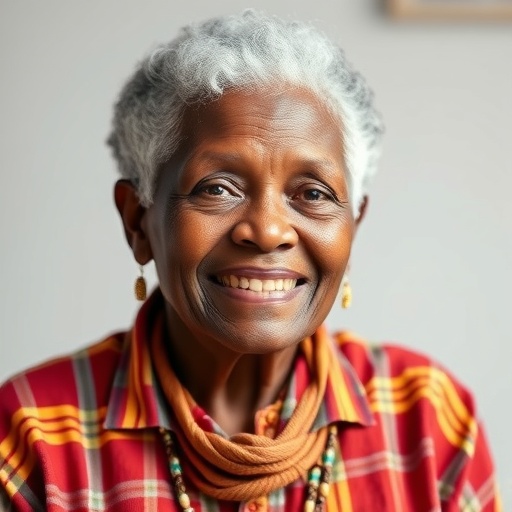As the global population ages, the need for comprehensive geriatric care becomes increasingly critical, particularly in regions such as Africa, where older adults face unique challenges. A recent systematic review and meta-analysis led by researchers Solbana, L.k., Dulo, A.O., and Tola, D.E. sheds light on the current understanding of geriatric care knowledge within the African continent. The study emphasizes not only the deficiencies in knowledge but also the factors influencing this knowledge among care providers and the elderly population itself.
Geriatric care encompasses the specialized health services that cater to the needs of older adults. This demographic is particularly vulnerable due to a variety of factors, including chronic health conditions, cognitive decline, and socioeconomic challenges. The review highlights a significant gap in healthcare provider knowledge regarding geriatric practices, suggesting that many practitioners are ill-equipped to meet the nuanced needs of aging patients. This lack of knowledge not only affects the quality of care provided but also may lead to detrimental health outcomes for older adults.
The determinants of geriatric care knowledge encompass a wide range of factors. Educational background, training programs, and hands-on experience significantly correlate with care practitioners’ ability to manage geriatric-specific issues. The analysis indicates that many healthcare professionals lack exposure to appropriate training on geriatric care, impacting their confidence levels when treating older patients. A striking revelation from the study is how systemic issues within healthcare frameworks further exacerbate this knowledge gap, leading to a cycle of inadequate care.
In reviewing existing literature from various African countries, the researchers discovered notable regional disparities in geriatric care knowledge. Urban healthcare facilities tend to have more resources and better training programs compared to rural counterparts. This discrepancy raises concerns about the equitable distribution of knowledge and resources necessary for providing adequate and effective care to older adults, particularly in underserved areas.
In addition to healthcare providers, the understanding of geriatric care among the general population is also crucial. The study elucidates that older adults themselves often possess limited knowledge regarding their healthcare needs, which complicates the situation. Awareness campaigns and educational programs tailored to improve the knowledge of both healthcare providers and patients can bridge this gap, fostering an environment where older adults receive the attention they need.
Moreover, cultural perceptions surrounding aging and health in various African societies have a profound influence on geriatric care knowledge. The societal norms and stigma associated with aging can lead to the neglect of older adults’ medical needs and exacerbate misunderstandings about health care in this demographic. This cultural context must be addressed when developing educational tools and training programs dedicated to geriatric care.
The call for action presented in this review goes beyond just the identification of problems. It serves as a manifesto for reforming geriatric training programs across Africa, emphasizing integrated approaches that consider local contexts and specific societal needs. By improving the geriatric care knowledge base, healthcare systems can establish a foundation for better health outcomes, turning the tide on the health crisis faced by older adults.
On a systemic level, the review suggests that governments and health agencies must prioritize geriatric education within their public health frameworks. Investments in training programs, outreach initiatives, and community engagement can significantly enhance our understanding of geriatric health issues. Furthermore, interdisciplinary collaboration among medical professionals, educators, and policymakers will be essential in designing effective interventions.
As the research unfolds, the implications of this systematic review extend to global practices in geriatric care. While the focus is on Africa, the lessons learned can inform practices in other regions facing similar challenges. In a world that is rapidly aging, the need for enhanced geriatric care knowledge and systems is more pertinent than ever, urging stakeholders to act without delay.
The findings of this study are not just statistics on a page; they represent the lived experiences of thousands of older adults across Africa. There is a pressing urgency to transform theoretical knowledge into practical application. By addressing the knowledge gaps and improving geriatric care, we can ensure that older adults lead healthier and more dignified lives.
In conclusion, this systematic review serves as a necessary awakening for all those involved in healthcare in Africa. It sheds light on a crucial aspect of public health that has often been overlooked—geriatric care. By understanding the multifaceted determinants impacting knowledge in this area, stakeholders can take decisive action to improve health outcomes for the older population, ensuring that they receive the care that they rightfully deserve.
The fate of geriatric care in Africa rests not just in the hands of healthcare providers but in the collective efforts of society, policy makers, and communities. This is a pivotal moment to advocate for change, champion initiatives, and galvanize the resources required to tend to the needs of our older populations effectively.
Subject of Research: Geriatric care knowledge and its determinants in Africa
Article Title: Geriatric care knowledge and its determinants in Africa: a systematic review and meta-analysis
Article References:
Solbana, L.k., Dulo, A.O., Tola, D.E. et al. Geriatric care knowledge and its determinants in Africa: a systematic review and meta-analysis.
BMC Geriatr 25, 928 (2025). https://doi.org/10.1186/s12877-025-06623-z
Image Credits: AI Generated
DOI: https://doi.org/10.1186/s12877-025-06623-z
Keywords: Geriatric care, Africa, healthcare knowledge, aging population, public health, training programs, health outcomes.
Tags: chronic health conditions in aging populationscognitive decline in older adultscomprehensive care for elderly populationselderly health issues in Africafactors influencing geriatric care educationgeriatric care challenges in Africageriatric healthcare provider knowledge gapshealthcare professional training in geriatricsimproving geriatric care qualitysocioeconomic factors affecting geriatric caresystematic review of geriatric practicestraining programs for geriatric healthcare





